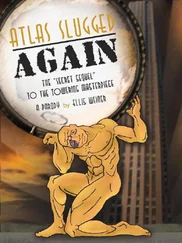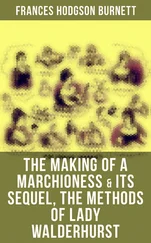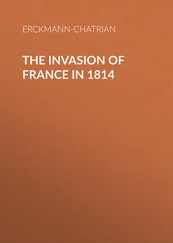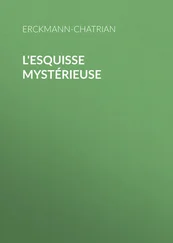Erckmann-Chatrian - Waterloo - A sequel to The Conscript of 1813
Здесь есть возможность читать онлайн «Erckmann-Chatrian - Waterloo - A sequel to The Conscript of 1813» — ознакомительный отрывок электронной книги совершенно бесплатно, а после прочтения отрывка купить полную версию. В некоторых случаях можно слушать аудио, скачать через торрент в формате fb2 и присутствует краткое содержание. Жанр: foreign_antique, foreign_prose, Историческая проза, на английском языке. Описание произведения, (предисловие) а так же отзывы посетителей доступны на портале библиотеки ЛибКат.
- Название:Waterloo: A sequel to The Conscript of 1813
- Автор:
- Жанр:
- Год:неизвестен
- ISBN:нет данных
- Рейтинг книги:5 / 5. Голосов: 1
-
Избранное:Добавить в избранное
- Отзывы:
-
Ваша оценка:
- 100
- 1
- 2
- 3
- 4
- 5
Waterloo: A sequel to The Conscript of 1813: краткое содержание, описание и аннотация
Предлагаем к чтению аннотацию, описание, краткое содержание или предисловие (зависит от того, что написал сам автор книги «Waterloo: A sequel to The Conscript of 1813»). Если вы не нашли необходимую информацию о книге — напишите в комментариях, мы постараемся отыскать её.
Waterloo: A sequel to The Conscript of 1813 — читать онлайн ознакомительный отрывок
Ниже представлен текст книги, разбитый по страницам. Система сохранения места последней прочитанной страницы, позволяет с удобством читать онлайн бесплатно книгу «Waterloo: A sequel to The Conscript of 1813», без необходимости каждый раз заново искать на чём Вы остановились. Поставьте закладку, и сможете в любой момент перейти на страницу, на которой закончили чтение.
Интервал:
Закладка:
Émile Erckmann, Alexandre Chatrian
Waterloo: A sequel to The Conscript of 1813
Often as the campaign of Waterloo has been described by historians and frequently as it has been celebrated in fiction it has rarely been narrated from the stand-point of a private soldier participating in it and telling only what he saw. That this limitation, however, does not exclude events of the greatest importance and incidents of the most intensely dramatic interest is abundantly proved by the narrative of the Conscript who makes another campaign in this volume and describes it with his customary painstaking fulness and fidelity. But what renders "Waterloo" still more interesting is the picture it presents of the state of affairs after the first Bourbon restoration, and its description of how gradually but surely the way was prepared by the stupidity of the new régime for that return to power of Napoleon which seems so dramatically sudden and unexpected to a superficial view of the events of the time. In this respect "Waterloo" deserves to rank very high as a chapter of familiar history, or at least of historical commentary.
I
The joy of the people on the return of Louis XVIII., in 1814, was unbounded. It was in the spring, and the hedges, gardens, and orchards were in full bloom. The people had for years suffered so much misery, and had so many times feared being carried off by the conscription never to return, they were so weary of battles, of the captured cannon, of all the glory and the Te Deums, that they wished for nothing but to live in peace and quiet and to rear their families by honest labor.
Indeed, everybody was content except the old soldiers and the fencing-masters.
I well remember how, when on the 3d of May the order came to raise the white flag on the church, the whole town trembled for fear of the soldiers of the garrison, and Nicholas Passauf, the slater, demanded six louis for the bold feat. He was plainly to be seen from every street with the white silk flag with its "fleur-de-lis," and the soldiers were shooting at him from every window of the two barracks, but Passauf raised his flag in spite of them and came down and hid himself in the barn of the "Trois Maisons," while the marines were searching the town for him to kill him.
That was their feeling, but the laborers and the peasants and the tradespeople with one voice hailed the return of peace and cried, "Down with the conscription and the right of union." Everybody was tired of living like a bird on branch and of risking their lives for matters which did not concern them.
In the midst of all this joy nobody was so happy as I; the others had not had the good luck to escape unharmed from the terrible battles of Weissenfels and Lutzen and Leipzig, and from the horrible typhus. I had made the acquaintance of glory and that gave me a still greater love for peace and horror of conscription.
I had come back to Father Goulden's, and I shall never in my life forget his hearty welcome, or his exclamation as he took me in his arms: "It is Joseph! Ah! my dear child, I thought you were lost!" and we mingled our tears and our embraces together. And then we lived together again like two friends. He would make me go over our battles again and again, and laughingly call me "the old soldier." Then he would tell me of the siege of Pfalzbourg, how the enemy arrived before the town, in January, and how the old republicans with a few hundred gunners were sent to mount our cannon on the ramparts, how they were obliged to eat horseflesh on account of the famine, and to break up the iron utensils of the citizens to make case-shot and canister.
Father Goulden, in spite of his threescore years, had aimed the pieces on the Magazine bastion on the Bichelberg side, and I often imagined I could see him with his black silk cap and spectacles on, in the act of aiming a twenty-four pounder. Then this would make us both laugh and helped to pass away the time.
We had resumed all our old habits. I laid the table and made the soup. I was occupying my little chamber again and dreamed of Catherine day and night. But now, instead of being afraid of the conscription as I was in 1813, I had something else to trouble me. Man is never quite happy, some petty misery or other assails him. How often do we see this in life? My peace was disturbed by this.
You know I was to marry Catherine; we were agreed, and Aunt Grédel desired nothing better. Unhappily, however, the conscripts of 1815 were disbanded, while those of 1813 still remained soldiers. It was no longer so dangerous to be a soldier as it was under the Empire, and many of these had returned to their homes and were living quietly, but that did not prevent the necessity of my having a permit in order to be married. Mr. Jourdan, the new mayor, would never allow me to register without this permission, and this made me anxious.
Father Goulden, as soon as the city gates were opened, had written to the minister of war, Dupont, that I was at Pfalzbourg and still unwell, that I had limped from my birth, and that I had in spite of this been pressed into the service, that I was a poor soldier, but that I could make a good father of a family, that it would be a real crime to prevent me from marrying, that I was ill-formed and weak and should be obliged to go into the hospital, etc.
It was a beautiful letter, and it told the truth too. The very idea of going away again made me ill. So we waited from day to day – Aunt Grédel, Father Goulden, Catherine, and I, for the answer from the minister.
I cannot describe the impatience I felt when the postman Brainstein, the son of the bell-ringer, came into the street. I could hear him half a mile away, and then I could not go on with my work, but must lean out of the window and watch him as he went from house to house. When he would stay a little too long, I would say to myself, "What can he have to talk about so long? why don't he leave his letters and come away? he is a regular tattler, that Brainstein!" I was ready to pounce upon him. Sometimes I ran down to meet him, and would ask, "Have you nothing for me?" "No, Mr. Joseph," he would reply as he looked over his letters. Then I would go sadly back, and Father Goulden, who had been looking on, would say:
"Have a little patience, child! have patience, it will come. It is not war time now."
"But he has had time to answer a dozen times, Mr. Goulden."
"Do you think he has nobody's affairs to attend to but yours? He receives hundreds of such letters every day – and each one receives his answer in his turn. And then everything is in confusion from top to bottom. Come, come! we are not alone in the world – many other brave fellows are waiting for their permits to be married."
I knew he was right, but I said to myself, "If that minister only knew how happy he would make us by just writing ten words, I am sure he would do it at once. How we would bless him, Catherine and I, Aunt Grédel and all of us." But wait we must.
Of course I had resumed my old habit of going to Quatre Vents on Sundays. On these mornings I was always awake early – I do not know what roused me. At first I thought I was a soldier again; this made me shiver. Then I would open my eyes, look at the ceiling, and think, "Why you are at home with Father Goulden, at Pfalzbourg, in your own little room. To-day is Sunday, and you are going to see Catherine." By this time I was wide awake, and could see Catherine with her blooming cheeks and blue eyes. I wanted to get up at once and dress myself and set off. But the clocks had just struck four, and the city gates were still shut. I was obliged to wait, and this annoyed me very much. In order to keep patience I began to recall our courtship, remembering the first days, how we feared the conscription and the drawing of the unlucky number, with its "fit for service;" the old guard Werner, at the mayor's, the leave-taking, the journey to Mayence, and the broad Capougnerstrasse where the good woman gave me a foot-bath, Frankfort and Erfurth farther on, where I received my first letter, two days before the battle, the Russians, the Prussians – everything in fact – and then I would weep, but the thought of Catherine was always uppermost.
Читать дальшеИнтервал:
Закладка:
Похожие книги на «Waterloo: A sequel to The Conscript of 1813»
Представляем Вашему вниманию похожие книги на «Waterloo: A sequel to The Conscript of 1813» списком для выбора. Мы отобрали схожую по названию и смыслу литературу в надежде предоставить читателям больше вариантов отыскать новые, интересные, ещё непрочитанные произведения.
Обсуждение, отзывы о книге «Waterloo: A sequel to The Conscript of 1813» и просто собственные мнения читателей. Оставьте ваши комментарии, напишите, что Вы думаете о произведении, его смысле или главных героях. Укажите что конкретно понравилось, а что нет, и почему Вы так считаете.











